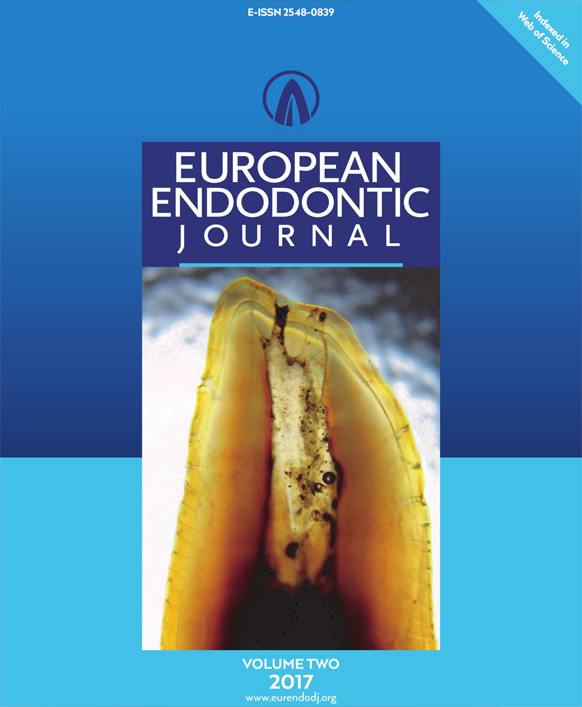
European Endodontic Journal
Yazarlar: Elham Senan, Ahmed A. Madfa, Hatem Alhadain
Konular:-
DOI:10.14744/eej.2020.99609
Anahtar Kelimeler: Canal anatomy,Cone beam computed tomography,Mandibular first molar,Yemeni population
Özet: To describe root and canal morphology of mandibular first molars (MFMs) in a Yemeni population using cone-beam computed tomography (CBCT). Methods: CBCT images of 500 right and left untreated MFMs with fully developed roots from 250 Yemenis (125 male and 125 female) comprised the sample size of this study. The following characteristics were recorded: (1) number of roots and their type and morphology, (2) number of canals orifices per root, (3) type of canal configuration and (4) primary variations in the morphology of the root and canal systems. Results: 96.8% of MFMs are double-rooted. A third root was found in 3.2%, more in females than males. Mesial root was mainly ribbon-shaped (92.2%) and distal root was kidney-shaped in 56.2%. Two canals orifices were found in mesial root of 95.8% and one canal orifice was found in distal root of 96.4%. Vertucci type II canal configuration was the most frequent (57%), followed by type IV (35.6%) in mesial root. Type III canal configuration was the most prevalent (48.8%), followed by type I (41%) in distal root. Variant 3 represented the most common root and canal morphology (89.8%). Conclusion: MFMs in Yemeni population are mainly two-rooted with 3.2% having a supernumerary distolingual root. Cross section of mesial root was mainly ribbon-shaped and distal root was kidney-shaped. Vertucci type II and III configurations were the higher incidence in mesial and distal roots, respectively. The presence of two canals in mesial root and one canal in distal root of MFMs with two separate roots (variant 3) was the most common morphology.